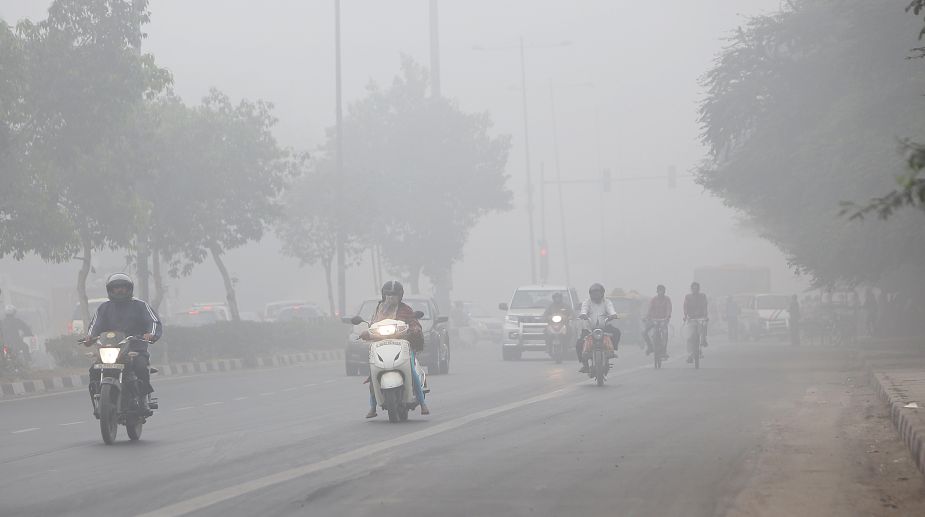GRAP Stage-2 revoked as Delhi’s air quality shows improvement
The forecast by IMD/ IITM also indicate the average AQI of Delhi to stay in 'Moderate/Poor' category with light rain/ drizzle expected in the coming days.

Representational Image (Photo: Amarjeet Singh)
The Union Environment Ministry on Friday held a meeting with the neighbouring states of Delhi and directed them to urgently implement short-term measures to improve the air quality of Delhi and NCR.
During the meeting, chaired by Environment Secretary C.K. Mishra, the governments concerned were urged to ensure strict enforcement of all measures suggested under the Graded Response Action Plan.
While suggesting measures which have already been initiated, the Ministry asked the state governments to form committees that would monitor the implementation of the measures recommended.
Advertisement
It asked the officials to ensure a ban on diesel gen-sets, brick kilns, stone crushers, hot mix plants, ban on entry of unauthorised trucks into Delhi and enhancing parking fee and capacity augmentation of public transport.
Directing a stop to civil construction activities for the moment, the Ministry, which formed a special committee on Thursday, also asked the governments to impose fines on defaulters through Municipal Corporations, State Pollution Control Boards and other organisations.
“Improve waste management and stop garbage burning,” the Ministry said.
“Chief Secretary, Haryana, and representatives from Punjab government informed the Committee that stubble burning in both the states was over and in the medium term, further problems because of that may not arise.”
“There were suggestions that state governments should also set up Flying Squads to assess the situation on the ground, prevent violation and report.”
As the states also pointed out the need for long-term measures to ensure that this situation does not arise every year, the Ministry asked them to continue to meet regularly.
“Discuss viable options like incentivising the farmers, providing subsidised equipment and using existing technologies to tide over this problem,” the Ministry said.
Advertisement